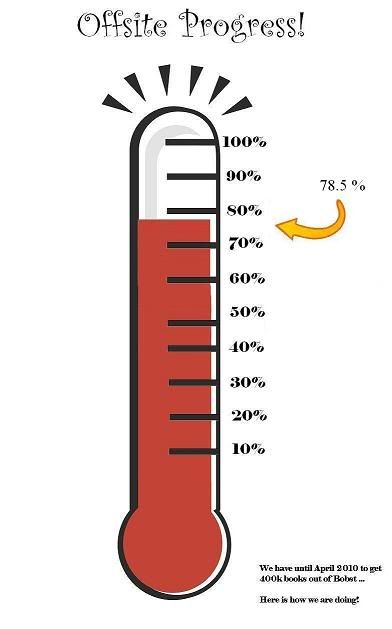A friend sent me this article, wondering what I thought of it in light of my job as Offsite Storage Supervisor. You can read the full article here, but here's an excerpt:
The proposed change has raised the ire of some arts, humanities, and social science professors who say that, while impressive, technology hasn’t yet replaced a good old-fashioned trip through the stacks. They argue that the administration dropped the changes in their laps without consulting them and that it will harm their main mode of research.
"You would never ask a scientist to get rid of his or her laboratory," said Annabeth Headrick, an art history professor. "But that’s exactly what’s being done to us."
Although I remain sensitive to faculty concerns and appreciate a good old-fashioned browsing session as much as anyone - and I must stress that I don't know whether there is truth the the assertion that faculty at Denver were never consulted - I must admit that my first reaction to the above is basically, *Sigh*, here we go again.
At NYU, as with other large libraries utlizing offsite storage space, we've been grappling with these concerns for years, and have had little choice but to get with the times in order to keep our library alive and vibrant.
At Denver, however, the plot thickens:
Once the renovations are complete, the university will bring back some books and leave others at the storage facility. The original plans -- which did not cause alarm -- called for 80 percent of the materials to return to the renovated library, leaving behind seldom-accessed journals and those with digital replacements, government documents, and little-used books.
But the university announced to faculty members last week that the renovated library would now only hold 20 percent of its current collection, much to the surprise of professors.
20%?!!! Holy swiss cheese, Batman! I don't know what the Penrose Library's spacial situation is, but it seems shockingly drastic to me to reduce a collection by that much in one fell swoop.
As I've said before, in my very first post on this blog, "As more of our older material goes upstate to the warehouse... we will eventually reach a tipping point where we have more books Off-Site than we have here."
But to the remaining nay-sayers, we can say that this happened organically, and over enough time that most people have gotten used to it, and have reported that they are at least relatively satisfied with the new methods of research that they've developed as a result.
